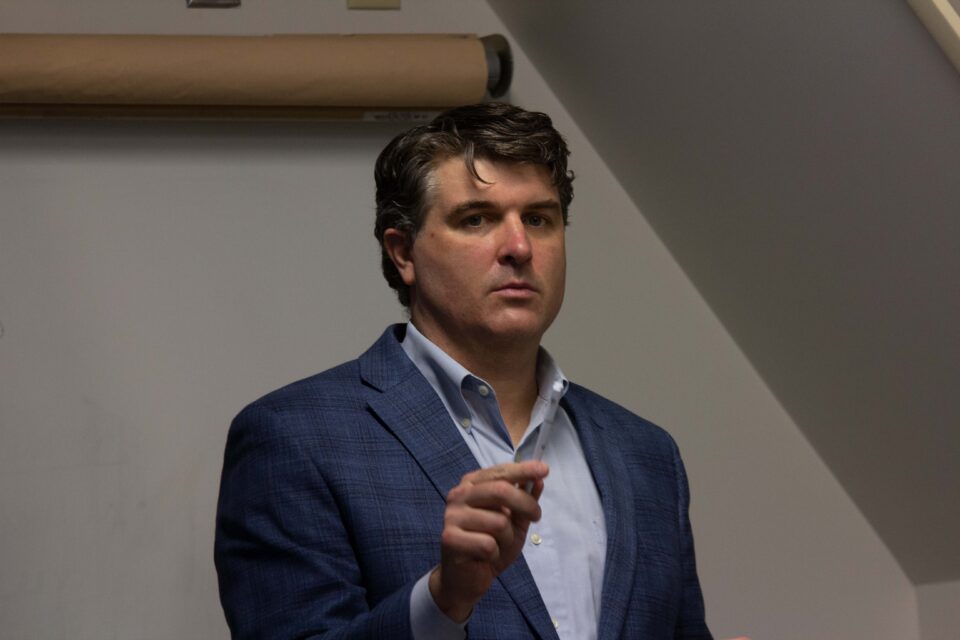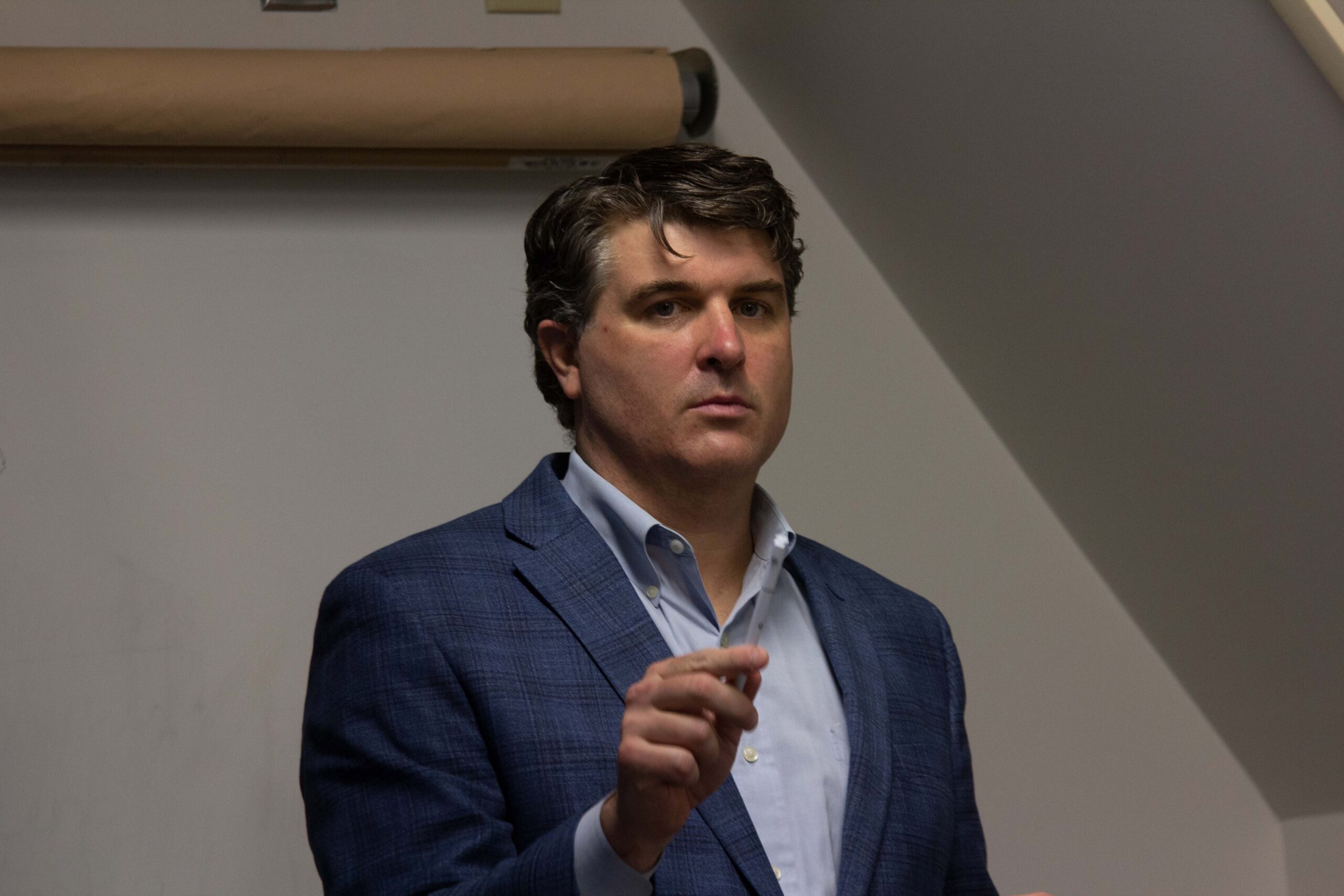
Environmental history has only been a topic of study for the past 50 years, but the University of St. Thomas has close ties to this growing area of research with history professor William Cavert.
Cavert began teaching at the university in 2015 and specializes in British history during the 1500s-1800s. His 2016 book on coal-air pollution in 17th century England titled “The Smoke of London: Energy and Environment in the Early Modern City,” has won the Turku Book Award for best environmental history book, the Whitfield Prize for best book on British history and the John Ben Snow Prize on best book on British history before 1800.
“Cavert has been among the leaders in our department at elevating St. Thomas within international conversations about environmental history,” history department chair Kari Zimmerman said. “(He) is one of the leading scholarly voices in an international conversation about environmental history.”
Since joining the university, Cavert has been at the forefront of expanding the study of the environment and how it affects events in human history. The study, he said, is really about people’s relationship with nature – how it changes them and how they change it.
“Studying it allows for a more complete picture of the past, but also one that can really draw on present concerns,” Cavert said. “We can look at problems that we are facing, and then ask, ‘Well, how did we get here? Where did those problems come from? How did they become how they are now?’”
Cavert, who is responsible for the creation of a course on environmental history at St. Thomas, said the study brings a new look at how human interaction is influenced by nature and how this new look brings students from a myriad of backgrounds to his classroom.
“One of the best things about environmental history is how diverse students’ disciplinary backgrounds are,” Cavert said. “There are history majors; there are biology majors; there are political science majors; there are geography majors. They bring their different perspectives and goals and strengths to the class discussions, so, in that sense, it’s one of the most interdisciplinary classes that you could possibly have.”
According to Cavert, environmental history does not solely rely on the study of the natural environment but also includes studying the consequences of the human impact on nature, including pollution, disease, and constructed environments like cities, farming and homes.
“It’s about farming and managed landscapes as much as it’s about wild landscapes; it’s about ugly landscapes as much as it’s about beautiful landscapes,” Cavert said. “So, even though it’s grounded in the idea that the environment is sort of out there and separate from us, it also breaks that down and sees how we’re always connected to the environment.”
Elijah Todd-Walden can be reached at todd5861@stthomas.edu.

